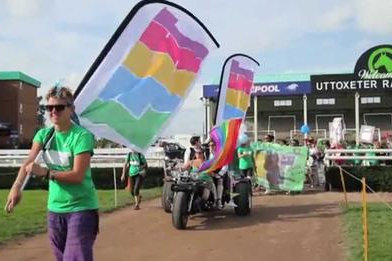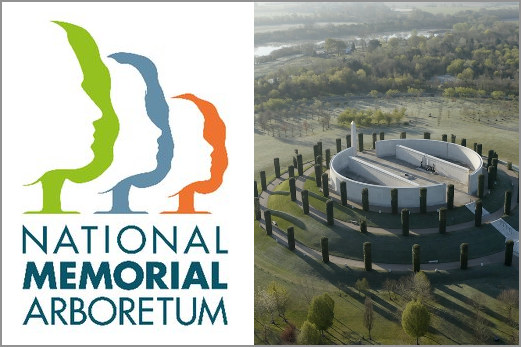Timeline of LGBT+ History for Stoke and Staffordshire
This page is a work in progress, we need your help!
Please help us create a timeline of LGBT+ history for Stoke and Staffordshire. We will use this in future publications and to contribute to local archives. You can send your comments and suggestions using the form at the bottom of this page or you can contact us by email, phone or social media – see contact us.
Our history is important, lets make sure it’s not hidden or forgotten!
Celtic Tribes
Ancient Britain was inhabited by Celtic Tribes, three of which held territory with borders in Staffordshire. Women occupied a significant position in Celtic society equal to or greater than that of men – think of Boudica. Several classical writers in the ancient world noted that Celtic men preferred to have sex with each other. Writing in the 4th century BCE Aristotle (Politics II 1269b) says of Celts that “their men openly preferred male lovers” and in the first century BCE Diodorus Siculus writing about Celtic men says “although their wives are comely, they have very little to do with them, but rage with lust, in outlandish fashion, for the embraces of males” (Bibliotheca historica 5:32).

Roman Occupation
Britain was part of the Roman Empire following the invasion of AD 43 until rule from Rome ended in the early 5th century. There is plenty of evidence of Roman life in Staffordshire including sites found in Chesterton, Trent Vale, Rocester and the spectacular site of Letocetum near Lichfield. Same sex relations between both women and men are a well documented part of Roman life though it would be wrong to ascribe the modern concepts of lesbian and gay identities to this very different culture.

Early Middle Ages
Following the end of Roman rule, homosexuality became stigmatised through the increasing influence of the Church. It is likely that references to same sex relations in pre Christian Celtic history and folklore were edited out of all records in this period. The changing attitude to sex can be seen in penitentials – religious documents written to guide confessors on the penances to be imposed on their parishioners when they admitted to engaging in various sins. See for example the ‘Paenitentiale Theodori’, an early medieval penitential handbook based on the judgements of Archbishop Theodore of Canterbury.
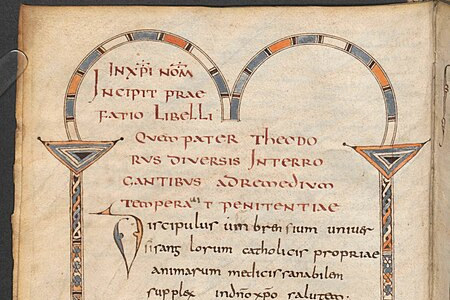
1533 - Buggery Act
The Buggery Act of 1533 was passed during the reign of Henry VIII, as part of a process of bringing activities that had previously been covered by church law into civil criminal law. The term buggery was not defined in the text of the legislation but was later interpreted by the courts to include only anal penetration and bestiality, regardless of the sex of the participants. The act was widely used to prosecute men engaged in consensual sex. Buggery remained a capital offence until 1861, though the last executions were in 1835.
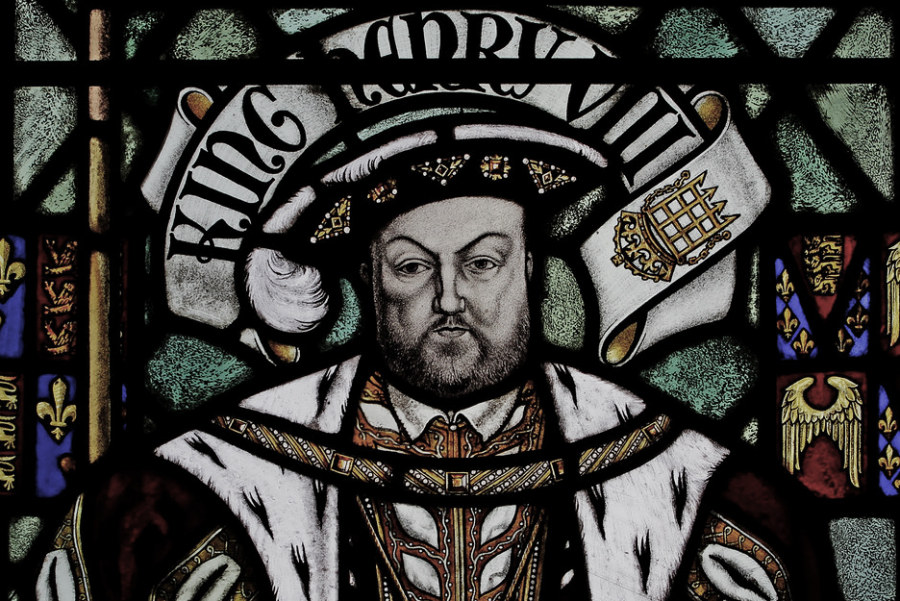
1800s - Criminalisation
In 1828 the Buggery Act of 1533 was repealed and replaced by the Offences against the Person Act which incorporated the further offence of ‘indecent assault’, which had emerged within common law during the 18th century. This was followed by The 1885 Criminal Law Amendment Act that made any act of ‘gross indecency’ between men a criminal offence, whether it occurred in public or in private. In 1898 ‘Cruising’ streets, parks or urinals was criminalised as the offence of ‘importuning’ through the Vagrancy Act and the Criminal Law Amendment Act (1912).
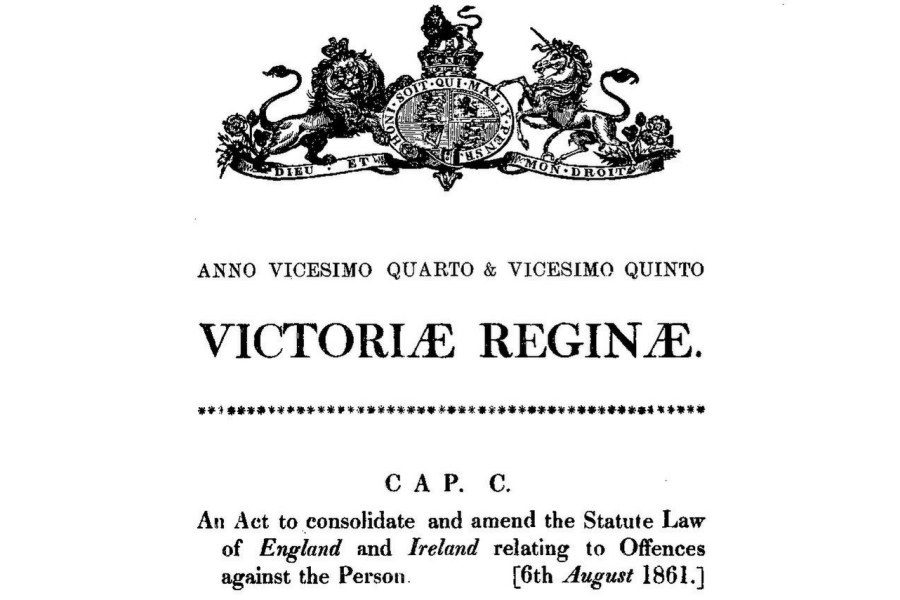
1835 - Staffordshire's Connection to the Last Men Hanged for Buggery
James Pratt and John Smith were the last two men to be hanged in England for the crime of ‘buggery’ (anal sex). Pratt and Smith came from working-class backgrounds in Essex and Worcestershire respectively. The “crime” took place in a private room in London rented from William Bonhill whose family has roots in South Staffordshire. The magistrate who committed the three men to trial was Hensleigh Wedgwood, the fourth son of Josiah Wedgwood II. Following the trial at the Old Bailey, Hensleigh wrote a passionate letter to the home secretary appealing against the death penalty that had been imposed on James and John. Read more…
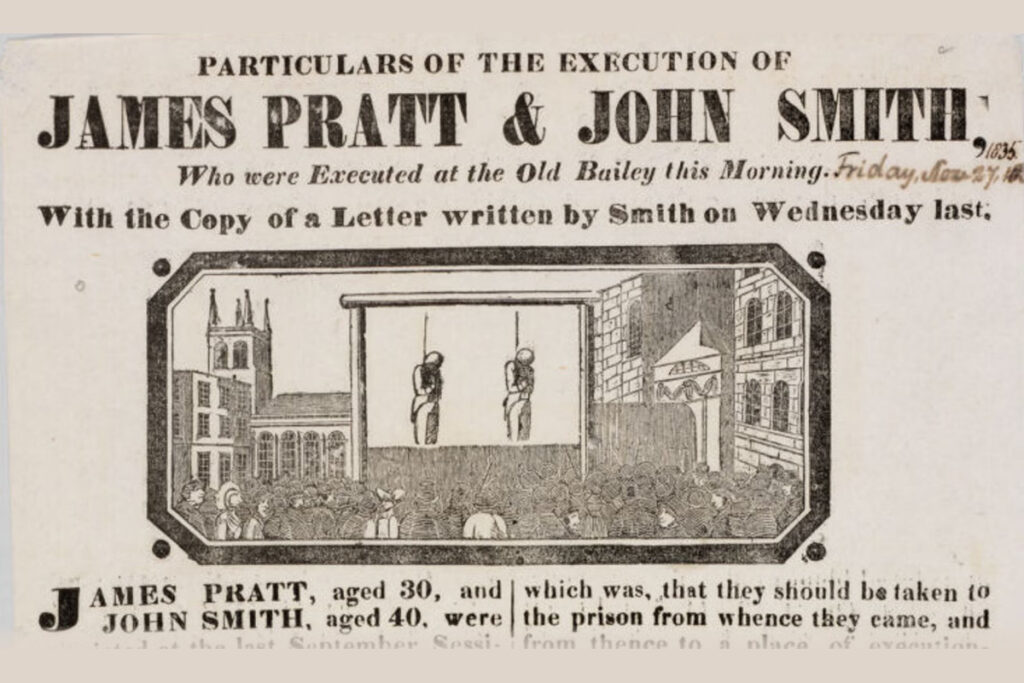
1883 - Oscar Wilde Visits Staffordshire
Oscar Wilde visited Staffordshire on more than one occasion to deliver lectures as part of his national tours. In 1883 the venues he appeared at included St James Hall in Lichfield and St Pauls Institute in Burton-on-Trent. The following year in 1884 he appeared at the Lyceum Theatre in Stafford, The Temperance Hall in Leek, The Stoke and Fenton School of Art, the Town Hall in Stoke and the Mechanics Hall in Hanley. Read more…
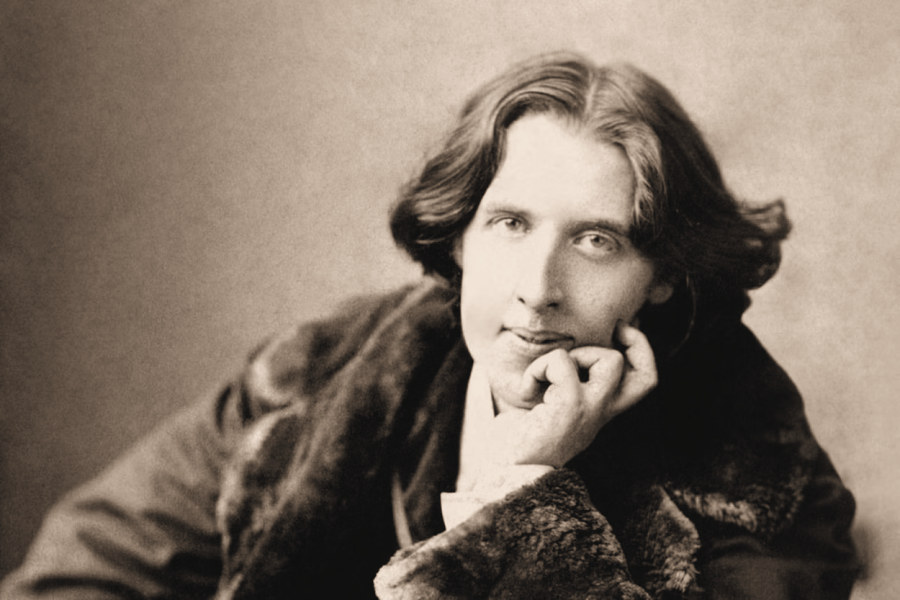
1891 - First Mention of Lesbian in Local Press
So far the earliest mention of the word “Lesbian” found in local newspaper archives appears to be in a review of “Dreams”, a collection of short stories by South African feminist Olive Schreiner published in 1890. Schreiner’s stories explore the lives of women dealing with issues of identity, love, and the expectations of society in Victorian-era South Africa. The book review appeared in The Lichfield Mercury in 1891 and makes a comparison to Sappho “the famed lesbian”. You can read the review here…
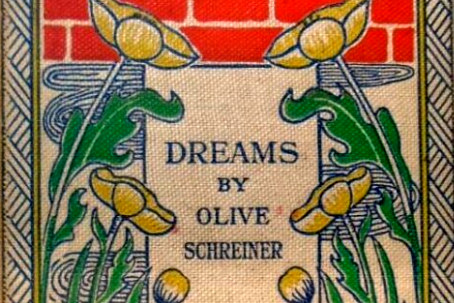
1918 - Maud Allan Libel Case
In the spring of 1918, famous Canadian dancer and actress, Maud Allan pursued a libel case against right wing MP Noel Pemberton-Billing. The case revolved around an article published in his newspaper “The Vigilante” which was headlined “The Cult of the Clitoris” and referenced Maud Allan’s performance in a production of Oscar Wilde’s Salome. Read more including a local report in the Evening Sentinel…
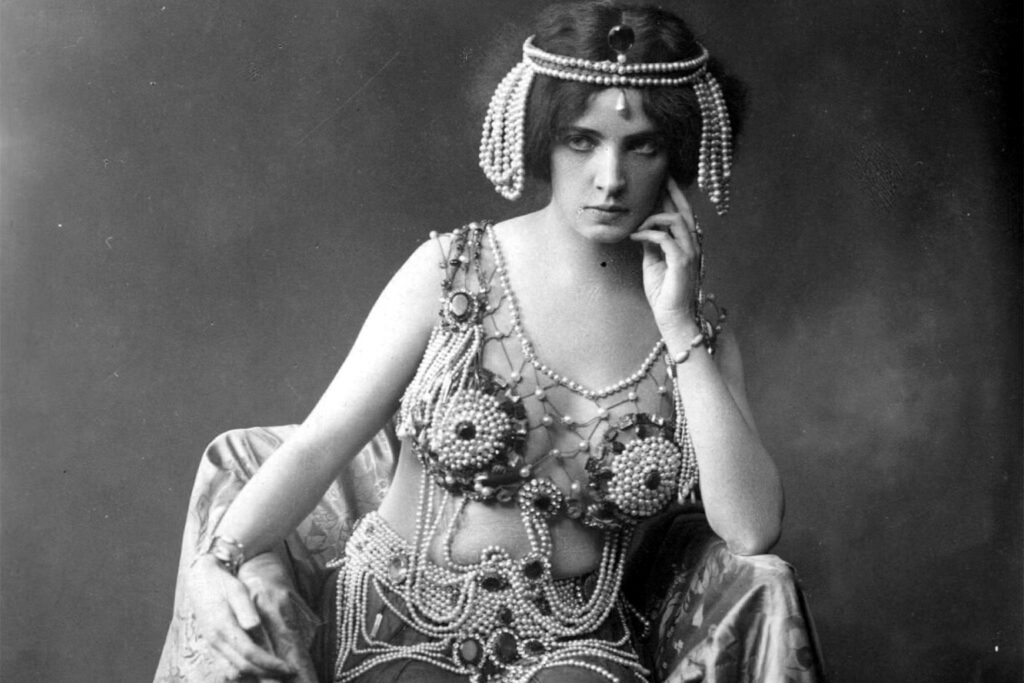
1921 - Proposal to Outlaw Gross Indecency Between Women
A new offence of gross indecency between women was drafted under amendments to the Criminal Law Amendment Bill 1921. Colonel Josiah Wedgwood, MP for Newcastle-under-Lyme voiced opposition to the amendment fearing that it would promote an increase in blackmail. Read more…
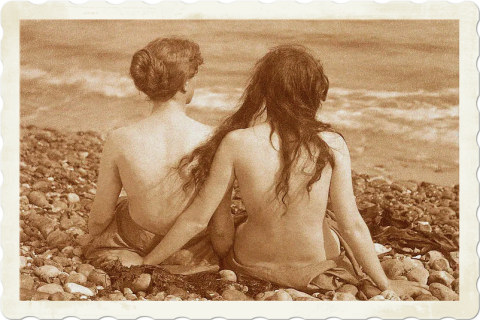
1920s - The Unicorn Inn and the Origins of Our Gay Scene
The earliest recollections handed down in our LGBT+ community say that the Unicorn Inn was a meeting place as early as the 1920s. Our gay scene may have had origins within the culture of local theatre communities as early as the mid 1800s. Read more about the early origins of our gay scene…
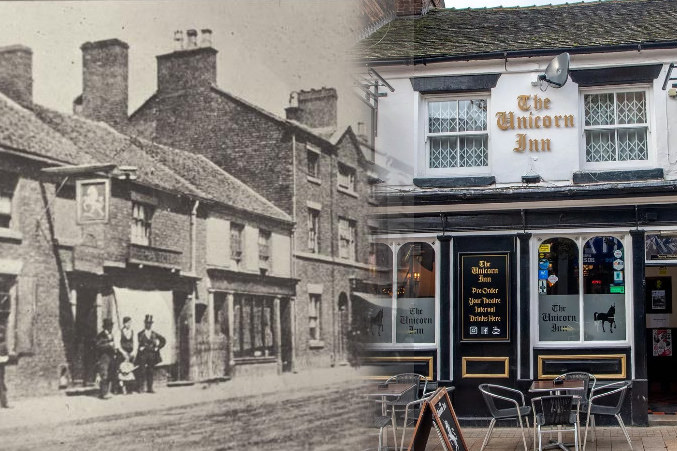
1928 - "The Well of Loneliness" A Lesbian Novel is banned
“The Well of Loneliness” is a novel by British author Radclyffe Hall first published in 1928. Shortly after the book’s publication, a British court judged it obscene because it defended “unnatural practices between women” and it was not published again until 1949. The book’s notoriety increased the visibility of lesbians and for decades it was the best-known lesbian novel in English. Read local newspaper reports…
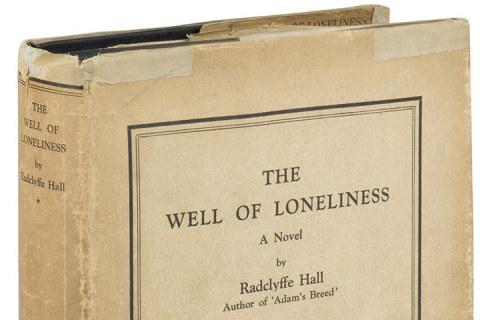
1922 - Quentin Crisp Attends Denstone College in Uttoxeter
Quentin Crisp was born Denis Charles Pratt on 25 December 1908. While at Kingswood House School in Epsom, Surrey he won a scholarship to Denstone College, a boys boarding school in Uttoxeter where he studied from 1922 to 1926 aged 13 to 17. His memories of Denstone College are recorded in chapter 2 of his autobiography, “The Naked Civil Servant” though he only refers to a “public school on the borders of Staffordshire and Derbyshire”.
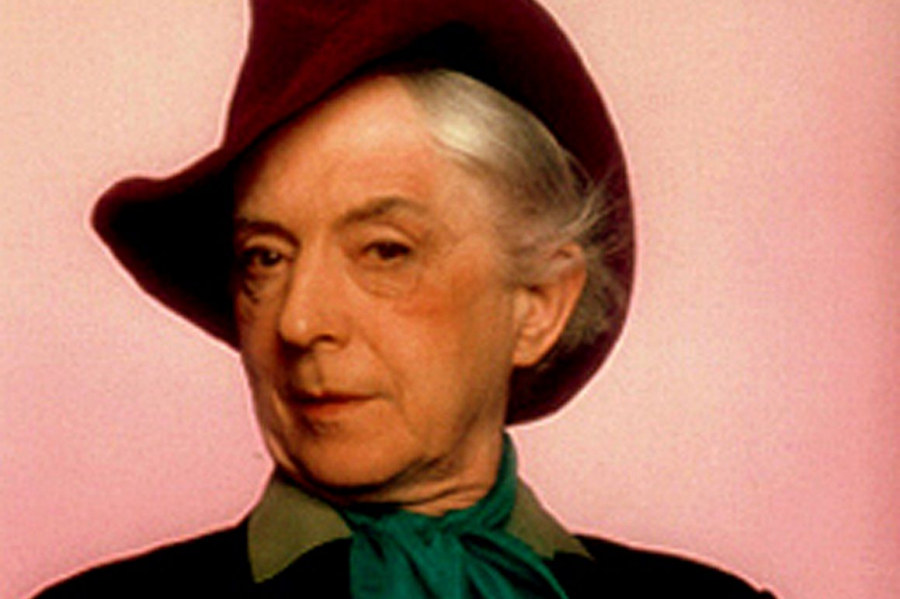
1957 - The Wolfenden Report
The Report of the Departmental Committee on Homosexual Offences and Prostitution (the Wolfenden report) was published on 4 September 1957. The report recommended the decriminalisation of sex between men.
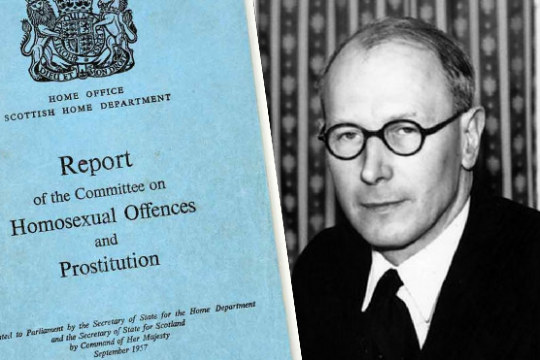
1967 - The Sexual Offences Act Partially Decriminalises Sex Between Men
Ten years after the publication of the Wolfenden report , the laws on sex between men were updated. The Sexual Offences Act 1967 decriminalised homosexual acts in private between two men over the age of 21. The Act only applied to England and Wales, and did not include decriminalisation in the Merchant Navy or the Armed Forces.
1967 - Police Arrest Four Young Men
People may have hoped that the partial decriminalisation of sex between men in 1967 would bring more enlightened times. Sadly police action against gay men increased and this included action against young men under the age of 21. The first concerted police campaign against gay men under the new age of consent was in Staffordshire in the Autumn of 1967. Four youths were arrested and charged, one later committed suicide. Read more…
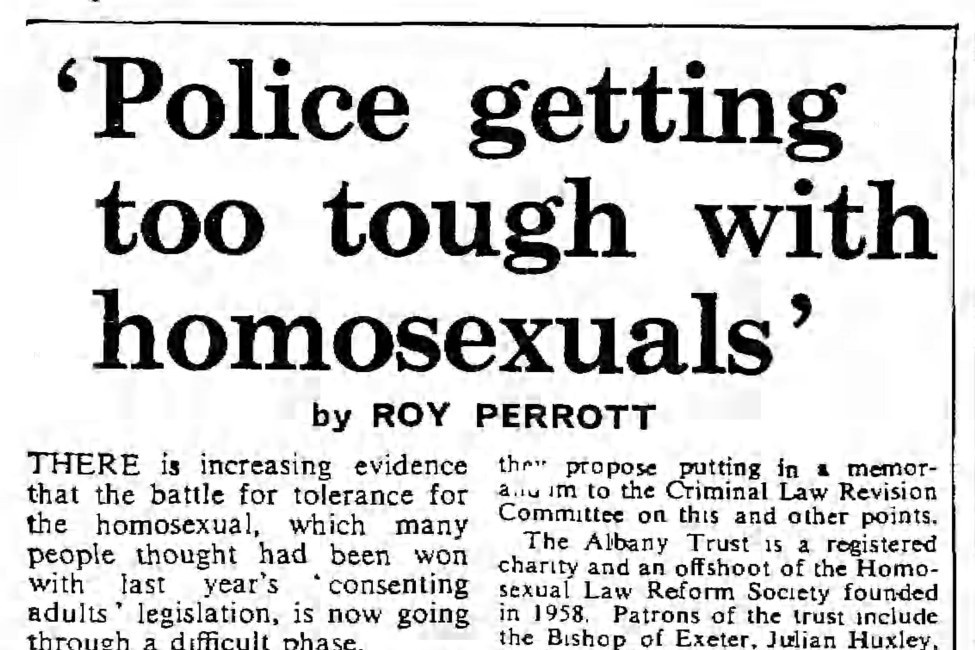
1969 - The Stonewall Riots and the Birth of Pride
In the early hours of the morning of Saturday June 28th 1969, lesbian, gay, bisexual, and transgender persons rioted following a police raid on the Stonewall Inn, a gay bar in Greenwich Village, Manhattan, New York City. Further riots and protests took place on the following nights Although these demonstrations were not the first time that American LGBT+ community members had fought back against police harassment, the Stonewall riots catalysed the gay rights movement. The anniversary of the riots is remembered every year in Pride marches in America and around the world. The UK’s first Pride march was held in London on July 1st 1972.
1972 - Police Target Keele Gay Lib Soc
In 1972 police targeted the Keele Gay Lib Soc as part of a wider campaign against gay men in the Potteries. An article in the newly launched national publication “Gay News” reported that over the last eight months police had been compiling a dossier of all known gays in the potteries. Read more…
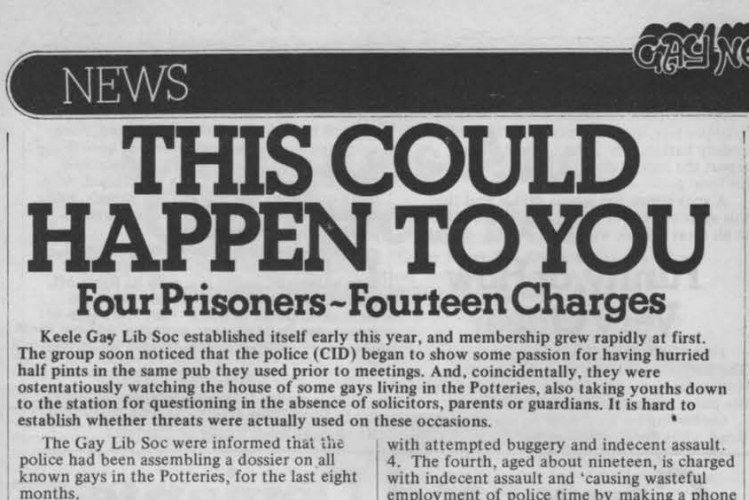
1972 - The Campaign for Homosexual Equality (CHE) in Stoke
Stoke-on-Trent had a local Campaign for Homosexual Equality (CHE) group that was part of a national network of CHE groups that met across the UK. The goal of the CHE was to promote legal and social equality for lesbians, gay men and bisexuals. The group formed in 1972 and initially met in members homes and the 141 club that opened a year later. Membership cost 50p
Nationally, the CHE has now evolved into, the CHE Research Trust (CHERT) a Charitable Incorporated Organisation (CIO) established to research and publish the history of LGBT rights in the UK. See www.chert.org.uk
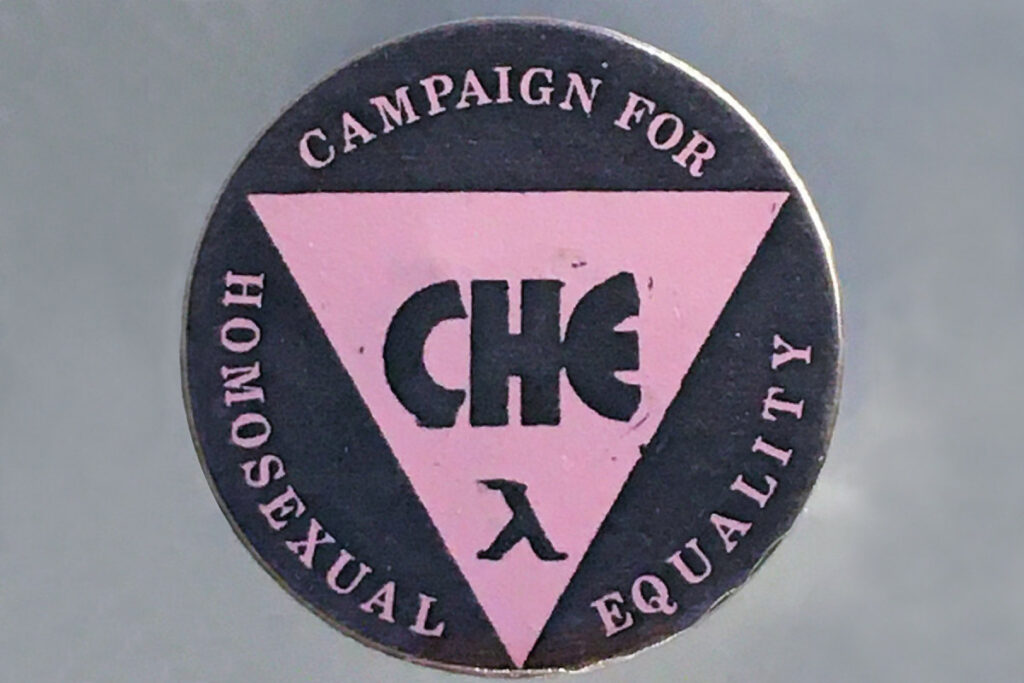
1972 - Labi Siffre Song "Cannock Chase"
Labi Siffre is a homosexual black folk singer with a catalogue of successful albums and songs. His third album, released in 1973 included the hits “It Must be Love” and the album’s title track “Crying, Laughing, Loving, Lying”. The album also included a less well know track called “Cannock Chase” of which Labi has said “I wrote it on Cannock Chase sitting in the back seat of my car with arms around my guitar and I gave it that place name”
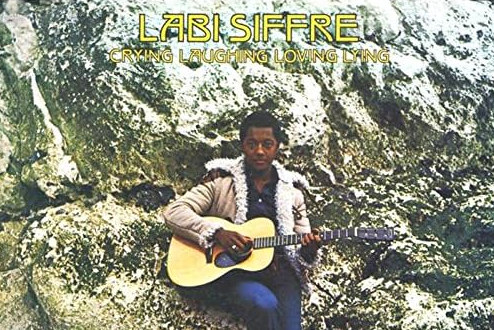
1973 - Stoke's First Listings in Gay News
The first issue of Gay News was published in May 1972. Over the following year an information page evolved with listings for areas outside London. Stoke’s first listing of pubs and clubs appeared in issue 27 published July 1973. Read more including clippings from this and other issues…
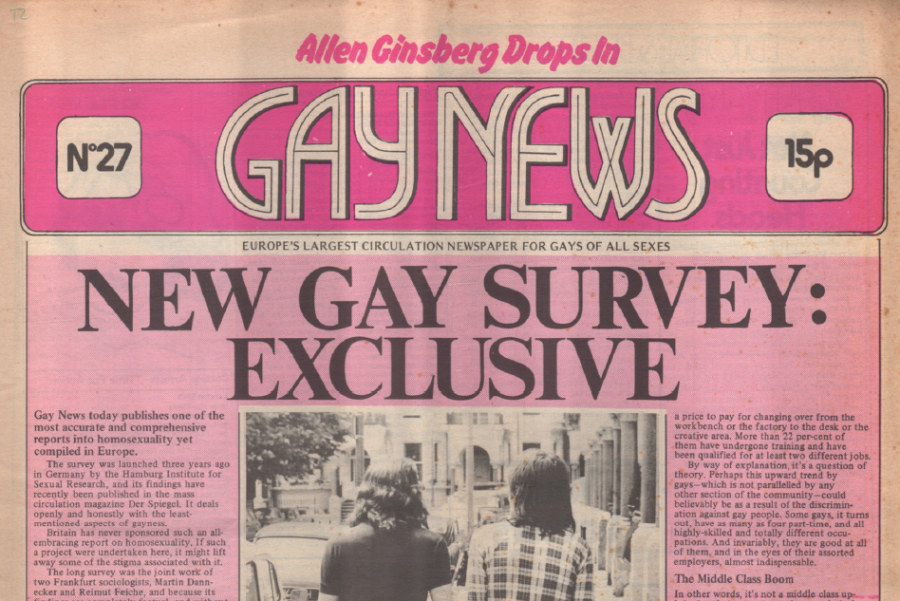
1973 - Stoke's First Gay Nightclub
Stoke’s first gay night club opened in May 1973. It was called the One for One, reflecting its address in 141 Marsh Street, Hanley. The name One for One also had other connotations.
We would love to hear from anyone that has memories, photographs or publicity material for the old 141 to help us expand on this entry.
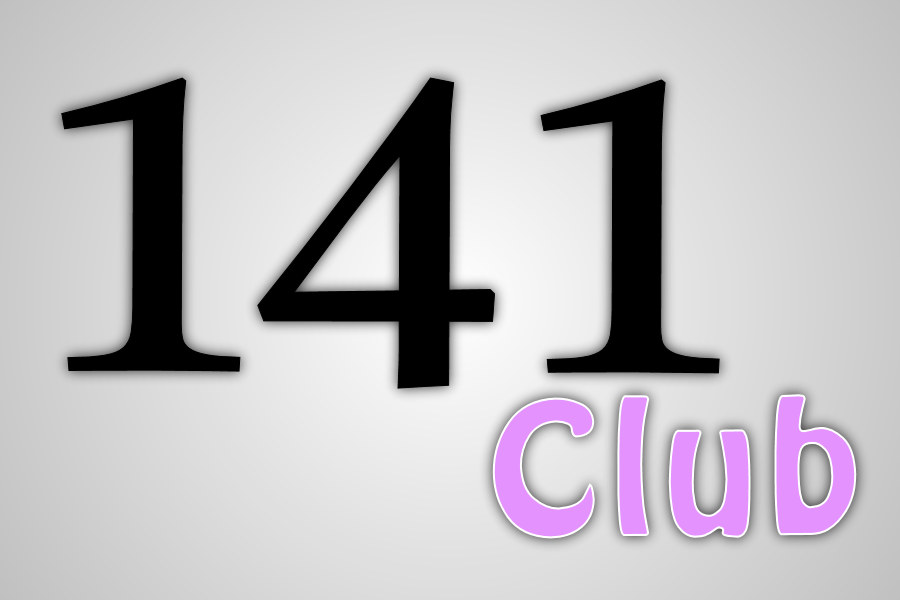
1974 - The Vine
The Vine, “Mames Bar” in Vine Street Hanley appeared in the listings published in Gay News issue 56, October 1974. It was well known in later years as a pub with an alternative scene. The Vine was demolished a while ago.
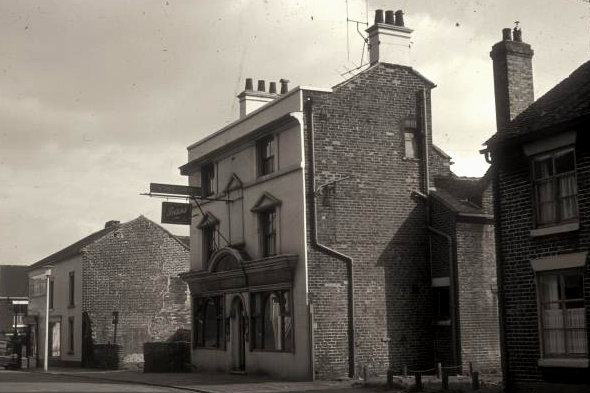
1977 - Tom Robinson Band Plays in Stoke and Stafford
The Tom Robinson Band were a British rock band, established in 1976. Their song “Glad to Be Gay” is considered a British national gay anthem. In 1977 they played venues in the midlands including Stoke and Stafford. Read more …
Were you at any of these gigs? We’d love to hear from you!
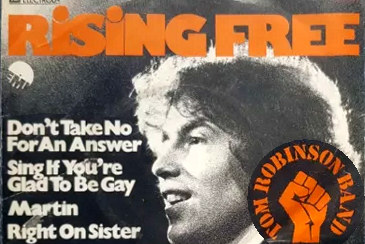
1977 - North Staffordshire Switchboard
Community members established our first local lesbian and gay helpline in 1972. It later became known at the North Staffordshire Lesbian, Gay and Bisexual Switchboard. The organisation became a registered charity in 2000 but it no longer operates having closed around 2008.
We have recently received a collection of old documents that may enable us to expand on this history. Or if you can help please contact us!
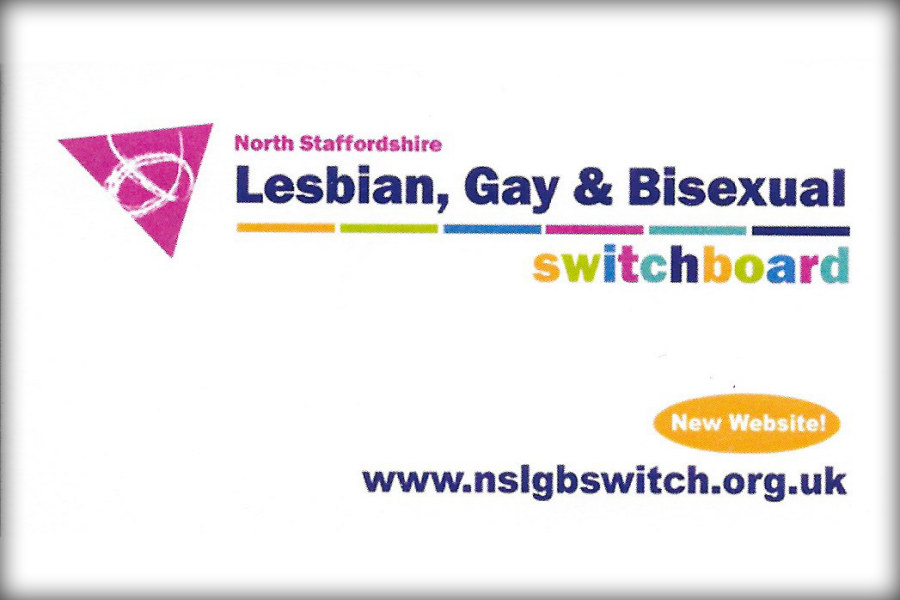
1979 - Potteries Gay Community Association
The PGCA formed in 1979. Members tried to raise funds for a Potteries gay centre to offer an alternative to the emerging club and pub scene and to provide a permanent home for the North Staffordshire Gay Switchboard. Their various fundraising activities included monthly discos at the 141 club and selling numbered postcards designed as bricks.
Can you help us expand on this with recollections, photos, leaflets or other publications?
1980s - The Excalibur
During the 1980s a new gay club opened in Hillcrest Street, Hanley, Stoke-on-Trent. Initially it was called the “Excalibur” and operated as a multi level venue with raves in the basement bar and meetings for the leather and fetish scenes on the top floor. Later it became “Mates” and in 1995, under new owners, became known simply as “The Club”.
Do you have any recollections and photos that can help us expand on this history?
1982 - Latecomer - A Gay Play
In October 1982 the Potteries Gay Community Association applied to stage a gay themed play, “Latecomer” by Eric Presland. After a private council debate two thirds of the committee agreed to the play being presented and it was subsequently staged at the Newcastle Guildhall on Nov 9th. The night did not go quite as planned! Read more…
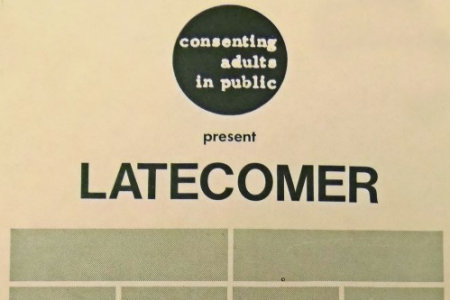
1983 - Beavers (B Arts)
B arts was formed in 1983 as “Beavers” by Yvon Appleby, Hilary Hughes and Gill Gill to “work together as women at women’s festivals in women’s centres, community centres, schools, refuges – anywhere that women meet”. Their first major show “Cloudwalking” told the story of three female climbers undertaking an expedition to the High Sierra Mountains and the intense relationships that developed during their climb. They became a company in 1985 and Beavers was renamed B arts in the mid-1990s. Find out more on the B-arts website – Then and Now and History
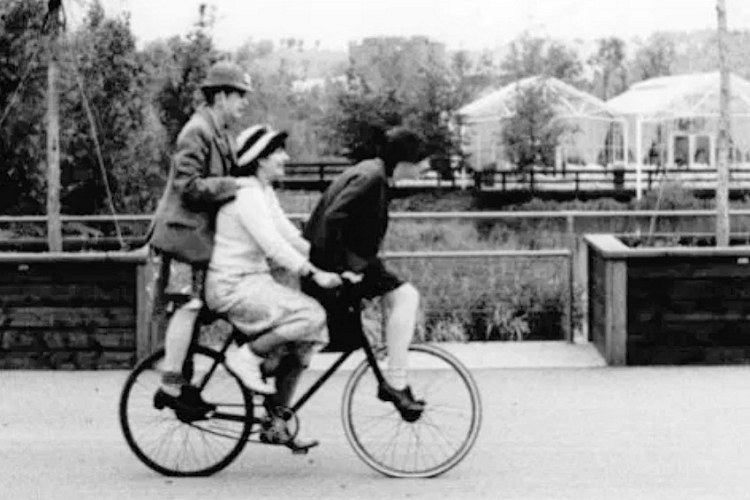
1984 - Lesbians and Gays Support the Miners
Lesbians and Gays Support the Miners (LGSM) was an alliance of lesbians and gay men who supported the National Union of Mineworkers during the year-long strike of 1984–1985. One of the two founder members of the movement was Mike Jackson who graduated from Keele University in 1980 Read more…
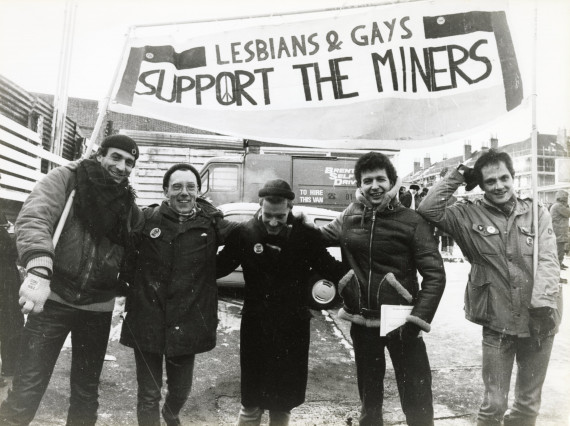
1986 - The Wombourne 12
In December 1986 the Conservative leader of South Staffordshire Council, William Brownhill, made headline news by suggesting at a Council meeting that 90% of homosexuals should be gassed to halt the spread of AIDS. Labour Councillor, Jack Greenaway, agreed with him… A protest outside Councillor Browns home led to the arrest of 12 members of the National Lesbian and Gay Youth Movement. Read more…
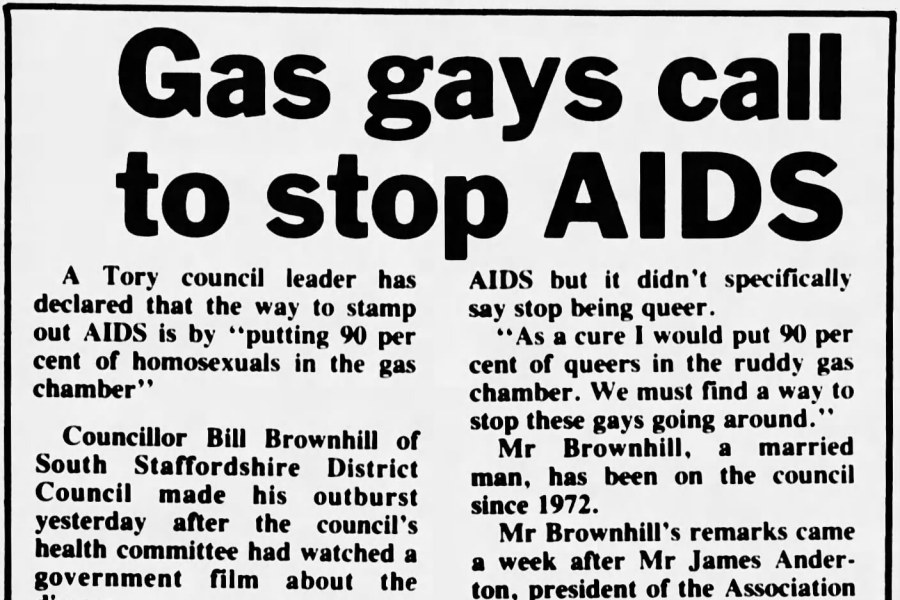
1988 - Clause 28 Bans the "Promotion of Homosexuality"
In 1988 a new section was added to the Local Government Act 1986 banning the promotion of homosexuality. This came into law on 24 May 1988 and had significant national and local impact. The LGBT community in Stoke staged a public demonstration which the Evening Sentinel newspaper described as the first ever gay demonstration in the Potteries. The law was not repealed until 21 June 2000 in Scotland, and on 18 November 2003 in England and Wales. Read local press reports…
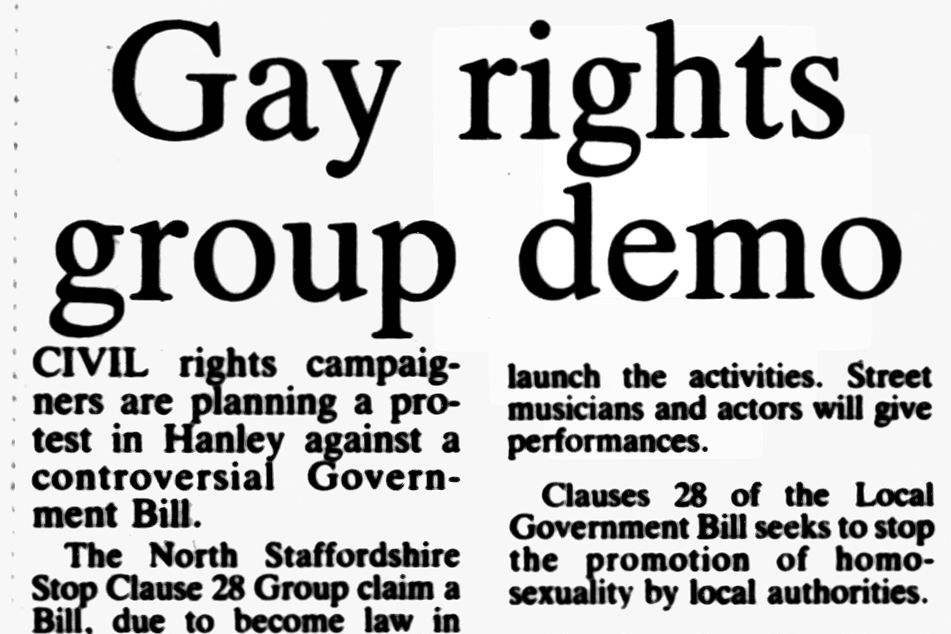
1990 - Body Positive North Midlands
In February 1990 a group of people living with HIV/AIDS met for the first time at the North Staffordshire Health Promotion Unit. The group decided to call itself “Body Positive” following the trend set by the first UK HIV/AIDS self help group established in London in the late 1980s. Most of the local people diagnosed with HIV infection in the early years of the HIV/AIDS pandemic were gay men.
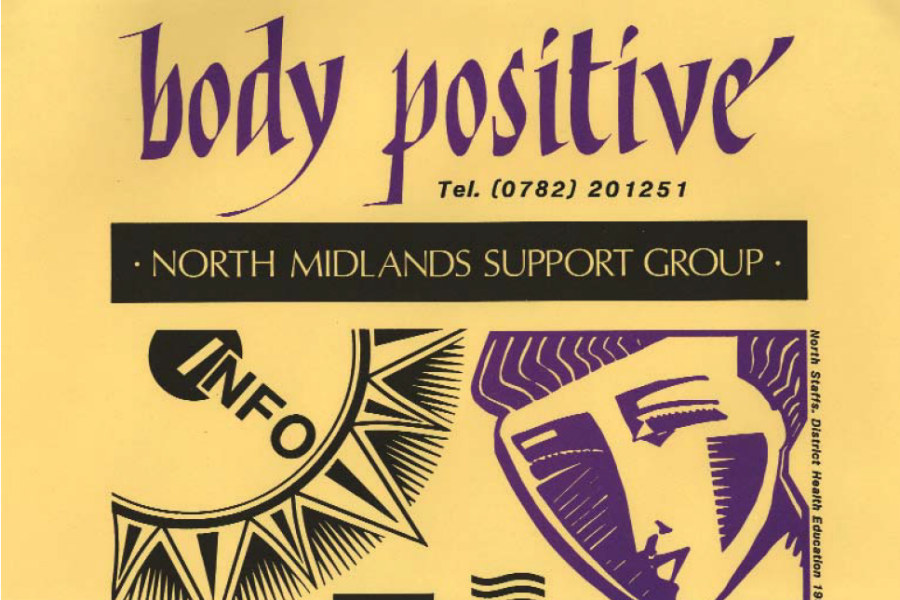
1993 - Staffordshire Buddies
Volunteers recruited and trained by the development worker of Body Positive North Midlands established a new local support service for people living with HIV/AIDS. Staffordshire Buddies was launched on the 1st December 1993 coinciding with the World Aids Day them “A Time to Act”
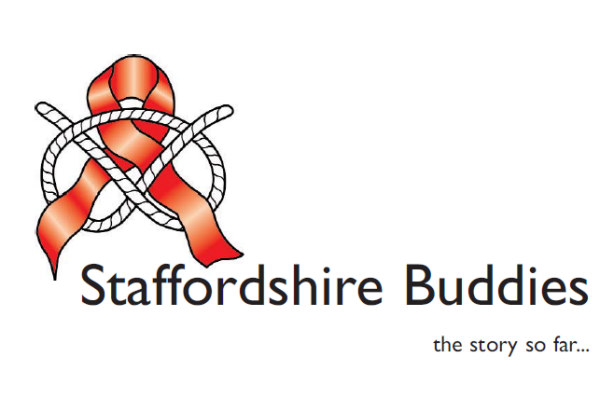
1994 - Age of Consent for Sex Between Men Reduced to 18
The Criminal Justice and Public Order Act 1994 reduced the age of consent for sex between men to 18, and legalised anal sex between men and women, also with an age of consent of 18. Read about changes to the age of consent on the LGBT Archive
1995 - The Club
In 1995 the gay club In Hillcrest Street, Hanley (originally called The Excalibur and later Mates) was taken over by John Wain and his business partner Richard Lancefield and it became known simply as “The Club”. Sadly the venue closed in the mid 2010s. A local publication called Proud published in 2015 has some great articles about this and the history of our local LGBT pub and club scene. Read issue 4 of Proud here
Do you have any recollections and photos that can help us expand on this history?
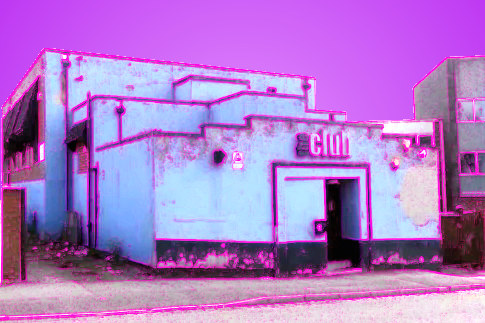
1995 - Mesmen Project
Staffordshire Buddies set up the Mesmen Project in Lichfield to provide HIV Prevention and Sexual Health Promotion to gay, bisexual and other men who have sex with men in South Staffordshire. The project ran for over twenty years – we hope to add a detailed history to our timeline in the near future.
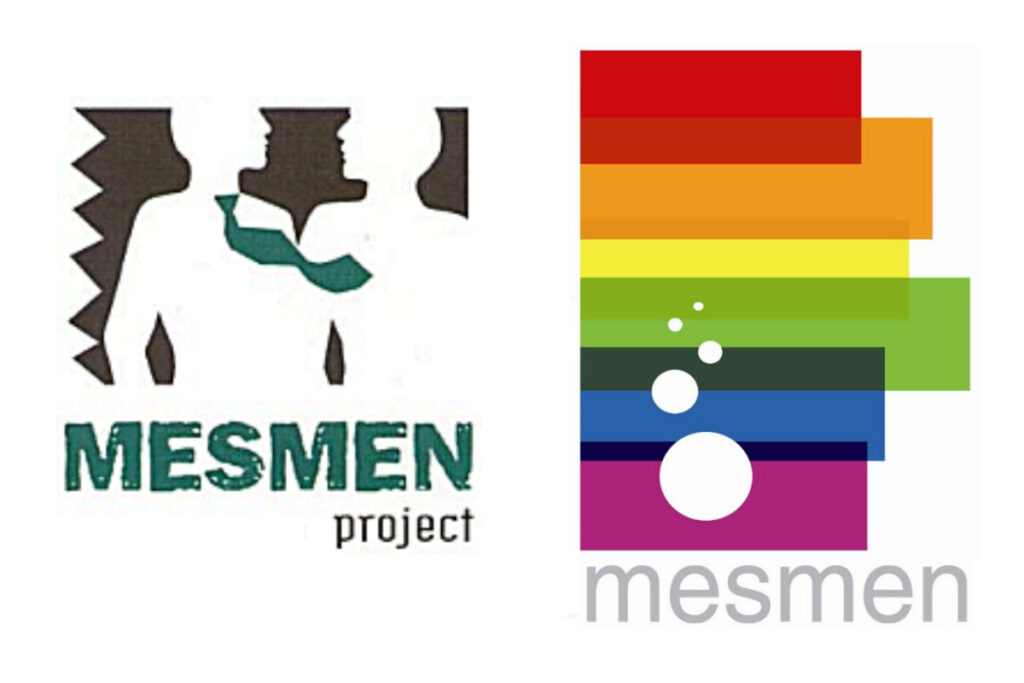
1997 - 21 Lives Ruined by Arrests
Staffordshire police, were heavily criticised for mounting an operation to spy through peepholes on men “cottaging” in public toilets in Stoke. Police relations with the gay community reached a low point when 21 men, many of them married, were arrested, with some losing their jobs, their wives and their homes due to unsympathetic local press coverage. Over the next ten years under the management of new Chief Constable John Giffard, Staffordshire Police dramatically improved and in 2006 was recognised by Stonewall as being Britains most gay friendly employer.
1996? - The Three Tuns
Following their purchase of The Club, business partners John Wain and Richard Lancefield took on ownership of nearby Hanley pub “The Three Tuns” which was extremely popular until it sadly closed in 2010.
Do you know when The Three Tuns first opened as a gay pub? Do you have any recollections and photos that can help us expand on this history?
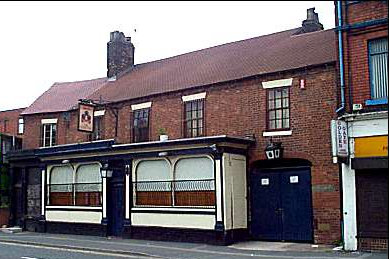
2001 - An Equal Age of Consent
The Sexual Offences (Amendment) Act 2000 implemented an equal age of consent of 16 years of age for males and females engaged in both homosexual and heterosexual acts. The change took effect on 8 January 2001.
2003 - Stoke Pride
A Stoke Pride event was originally planned in 2003 but was cancelled due to fears of a homophobic backlash following opposition from local residents and BNP Councillors. Despite the hostility various events were organised by community activists and in 2008 Stoke Pride was officially endorsed by the Local Authority. The first Pride took place on a car park in Hanley and then for several years it was in Northwood Park before moving to Hanley Park in 2017.
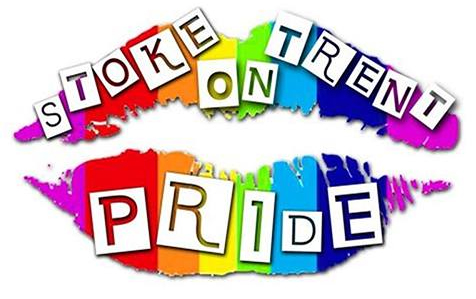
2005 - Civil Partnerships Begin
The Civil Partnership Act 2004 gave legal recognition to a relationship between two people of the same sex conferring almost all the same rights and responsibilities as civil marriage. The first civil partnerships were formed in December 2005. The legislation was updated in 2019 to allow heterosexuals to form Civil Partnerships. Read local news articles from 2006…
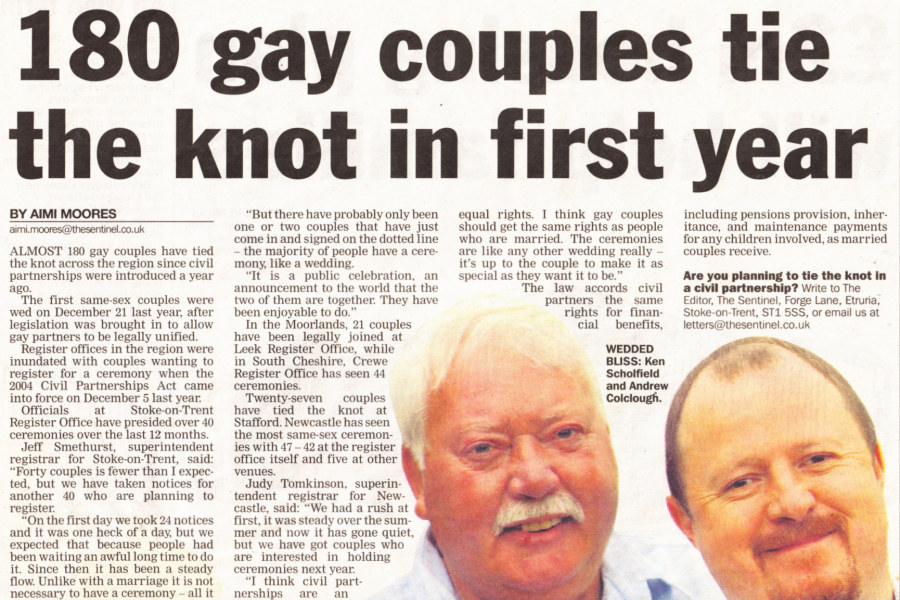
2006 - Pink
Pink is an award winning club and cabaret bar that opened in 2006 and moved to its current site in Stafford Street, Hanley, in 2012

2006 - Staffordshire Police most "Gay Friendly" employer in Britain
In 2006 Staffordshire Police were recognised by Stonewall as being the most “gay friendly” employer in Britain. This accolade was remarkable given the local police force’s past poor relations with the LGBT community. The force now has a “Staffordshire Police LGBT+ Association” and runs local campaigns combatting hate crime against the LGBT+ community.
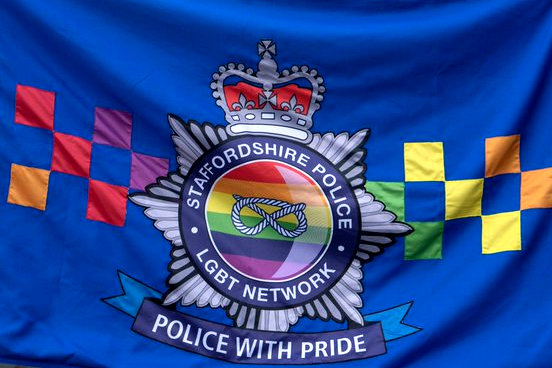
2009 - The North Midlands LGBT Older Peoples Group
In December 2009 A group of older LGBT+ people held the first meeting of what was later to become the North Midlands LGBT Older People’s Group. We are in the process of creating a book to celebrate our first fifteen years which we hope to add to this timeline entry later in 2024

2013 - L-Fest in Uttoxeter
L-Fest is an annual festival for women who like women. It was founded in 2008 by Cindy Edwards as a mini festival held at her farm on the Welsh borders. The festival moved to Shrewsbury Showground in 2011 1nd 2012 before having a four year run at Uttoxeter Racecourse from 2013-2016. This video features L-Fest in Uttoxeter in 2014
2014 - Gossip
Hanley nightclub “Gossip” opened at 5 Hope Street after the closing of the Factory nightclub on Bryan Street. It is run by Carl and Dominic Gratty of Stoke-on-Trent Pride.
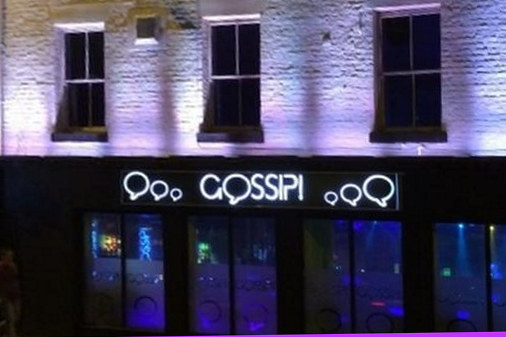
2023 - B Arts Queer As Stoke Project
Queer-as-Stoke began as an idea for a map of Stoke-on-Trent and the surrounding area, locating places and stories of LGBTQIA+ significance. As the project evolved it became clear that not all stories could be pinpointed on a map. Find out more…
2024 - Memorial for LGBT+ Armed Forces
In April 2024 national news reported that The UK’s first memorial for LGBT+ armed forces personnel is to be built at the National Memorial Arboretum in Staffordshire. The government has put £350,000 towards the project, which was one of 49 recommendations of an independent review into the historical treatment of people who were sacked or forced out of the military for being LGBT. The memorial is expected to be unveiled in May 2025. Read more on BBC NewsL

Add to Our LGBT+ History for Stoke and Staffordshire
We want to create a record of the important people, places, organisations and events that are part of our history. We would love to receive your memories and recollections – please send us details of things that we can include. Anything you share with us may be used in future publications and local archives.
If you would like to share photos, further information or anything else please Contact Us
More LGBT+ History Pages
© North Midlands LGBT Older Peoples Group
A Charitable Incorporated Organisation (CIO) – Registered Charity Number: 1186844


